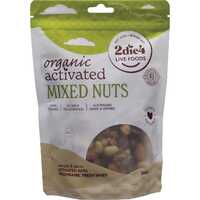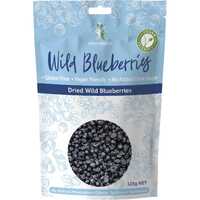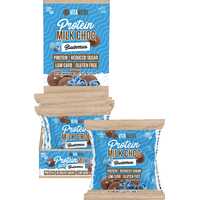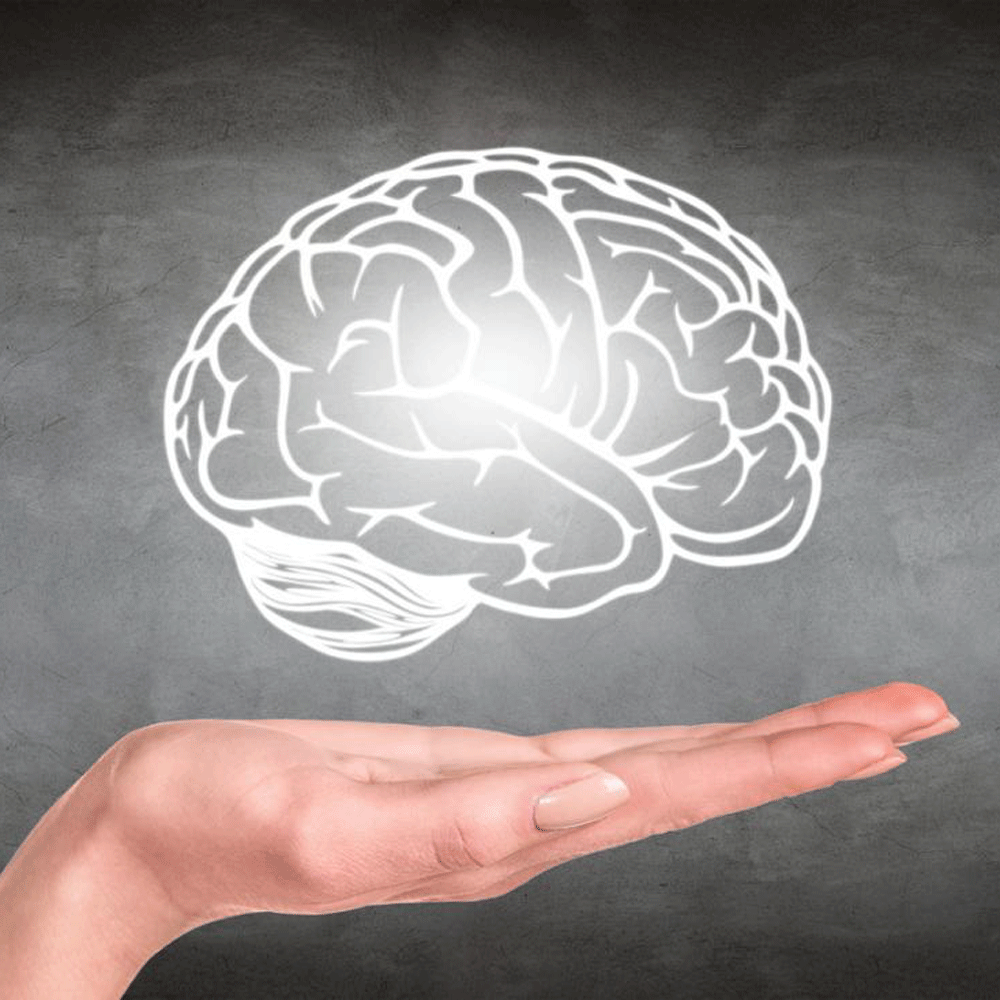Good food and regular exercise are the twin foundations of health. Nutrition helps to fuel your physical body, and movement keeps you mobile as you age. Long-term health outcomes also depend on the brain, with diet and fitness providing a number of cognitive and mental health benefits. From better memory and improved performance to less anxiety and depression, looking after your brain can have a profound impact on your quality of life.
Let's review the many benefits of diet and exercise and find some simple ways to supercharge your brain.
Nutrition and Brain Function
Your brain is the hardest-working part of your body. It is incredibly complex, always on, and responsible for pretty much everything. Your brain helps to control all thoughts and movements, including critical functions like your breathing and heartbeat. It controls your senses and requires a constant supply of fuel to keep going.
The neurons and synapses in your brain create the connections responsible for learning and memory. Constantly firing, this part of the body is subject to regular stress. Along with old age and poor lifestyle choices, brain cells can be damaged when free radicals are released by the body due to poor dietary choices. It also works the other way, with good food a great way to nourish and protect the brain from oxidative stress.
Whatever you eat, the food you put into your body has a huge effect on how your brain functions. When combined with regular exercise and good lifestyle habits, diet can help to enhance your cognitive abilities, protect your brain from damage, and counteract the effects of ageing. What you eat directly affects the structure and function of your brain – for better or worse. For example, refined sugars promote insulin problems and brain inflammation, and omega-3 fats help to support synaptic plasticity and healthy brain function.
Exercise and Brain Function
Along with food intake, how you move and shake also has a huge effect on the health of your brain. While fitness has long been associated with improved physical health outcomes, recent studies have highlighted equally positive effects on brain function. Instead of doing cardio to slim down or lifting weights to improve body mass, you can perform regular workouts to improve your memory and enhance your cognitive function.
From breathing and temperature control to the regulation of hunger and movement, your brain requires constant energy to keep working. Part computer, part machine, and part muscle, your brain works best when it's activated and connected. Exercise affects the brain in many ways, and physical activity is one of the best ways to energise and protect this important organ.
Working out increases your heart rate, which pumps more oxygen to the brain. Exercise also helps to release hormones, which provide a healthy environment for the growth of new brain cells. Last but not least, fitness routines promote brain plasticity by stimulating new connections between cells. While most fitness activities provide benefits, aerobic exercise offers the most rewards, as it gets more blood pumping.
Nutrition and Mental Health
In a stressed and sometimes confusing modern world, it's important to look after your mental health. How you think and feel on the inside has a huge effect on your behaviour, and it also influences the people around you. Mental health is much more than the absence of mental disorders – it's about supporting yourself, promoting wellness, and giving happiness the best chance to thrive.
Food plays a central role in this process, with the fuel entering your body having a direct effect on your headspace. Eating well gives you more energy, improves your sleep, and enhances your mood. Along with better cognitive function, a good diet can help you feel more positive and less anxious about the world around you. While eating well is not the only factor linked to positive mental health, it's one of the most influential.
According to a study by the University of Melbourne, a dietary pattern consisting of vegetables, fruit, meat, fish, and whole grains is associated with a lower chance of developing depression and anxiety disorders. This is bad news for people that follow a typical western diet, which consists of too many fried foods, refined grains, and sugary products. The relationship between good food and mental health is there from the beginning, with the children of mothers who eat poorly during pregnancy likely to experience more behaviours linked with mental disorders.
Exercise and Mental Health
Exercise releases a range of chemicals into your brain, including endorphins, serotonin, and cannabinoids. These chemicals are all known to influence mood, from immediate feel-good sensations to sustainable long-term benefits. When you exercise, proteins are released, growth factors are ignited, and new connections are made through neurogenesis. This is a major plus for people living with depression, who often experience a lack of nerve cell growth.
Along with reducing depression, exercise can help to decrease some of the biological and psychological mechanisms associated with anxiety. Exercise is a great way to divert your brain and focus on the world around you. It helps to increase the release of anti-anxiety neurochemicals and has a positive influence on the stress response system found in the gut and nervous system. When there's a stress imbalance in the body, anxiety symptoms are much more likely to develop.
What foods Are Best For The Brain?
If you want to protect your brain, promote cognitive function, and support mental health, you need to eat the right foods. While eating a regular healthy diet goes a long way, some specific foods can help to supercharge the brain.
- Fatty fish, nuts, and seeds – Oily fish like salmon are rich in brain-boosting omega-3 fats. According to one study, people with high omega-3 levels have increased blood flow in the brain, which can lead to better cognition and brain function. Roughly 60% of your brain is made of fat, with omega-3s helping to build cells in the brain and throughout the nervous system. Many nuts and seeds also contain omega-3 fats, along with vitamin E to protect against oxidative stress.
- Coffee and tea – Coffee is rich in caffeine and antioxidants, with the former helping to increase short-term alertness and the latter leading to a reduced risk of neurological diseases. Tea also has caffeine, with green tea including the helpful amino acid L-theanine, which helps to reduce anxiety. Too much caffeine can cause harm, however, so take it easy and time your drinks wisely to reap the short-term benefits.
- Fresh berries and green veggies – While all fresh fruits and vegetables are good for the brain, some items provide more pronounced benefits. Blueberries have a range of anti-inflammatory effects, and they include antioxidants that accumulate in the brain and improve communication between cells. Green veggies are also beneficial, especially broccoli and kale due to their high concentration of glucosinolates.
What Exercises Are Best For The Brain?
- Aerobic exercise – Cardio exercises like running and swimming seem to offer the most reward for your brain because they increase heart rate and get blood pumping throughout your nervous system. This helps to reduce insulin resistance, prevent inflammation, and stimulate the release of chemicals needed for learning and memory. The 'runner's high' can be a great antidepressant, with regular fitness also helping to reduce stress and promote better sleeping patterns.
- Strength exercise – While strength training does not offer the same cognitive benefits as aerobic exercise, lifting weights can help to protect the brain. According to a study carried out by the University of Sydney, strength training helps to improve cognitive performance and protect the brain from conditions that involve the degeneration of the hippocampus, such as Alzheimer’s disease.
People often perform mental exercises to protect and improve their brain function. While puzzles and crosswords have a role to play, healthy diet and exercise programs could have an even more beneficial effect. When it comes to brain health, the advice is simple. Eat a fresh healthy diet topped by brain-boosting foods, move often to get your blood pumping, and set up sustainable lifestyle habits that you can follow for years to come.


 Certified Organic
Certified Organic Vegan Friendly
Vegan Friendly  Vegetarian
Vegetarian Organic Ingredients
Organic Ingredients Dairy Free
Dairy Free Gluten Free
Gluten Free Keto Friendly
Keto Friendly
































